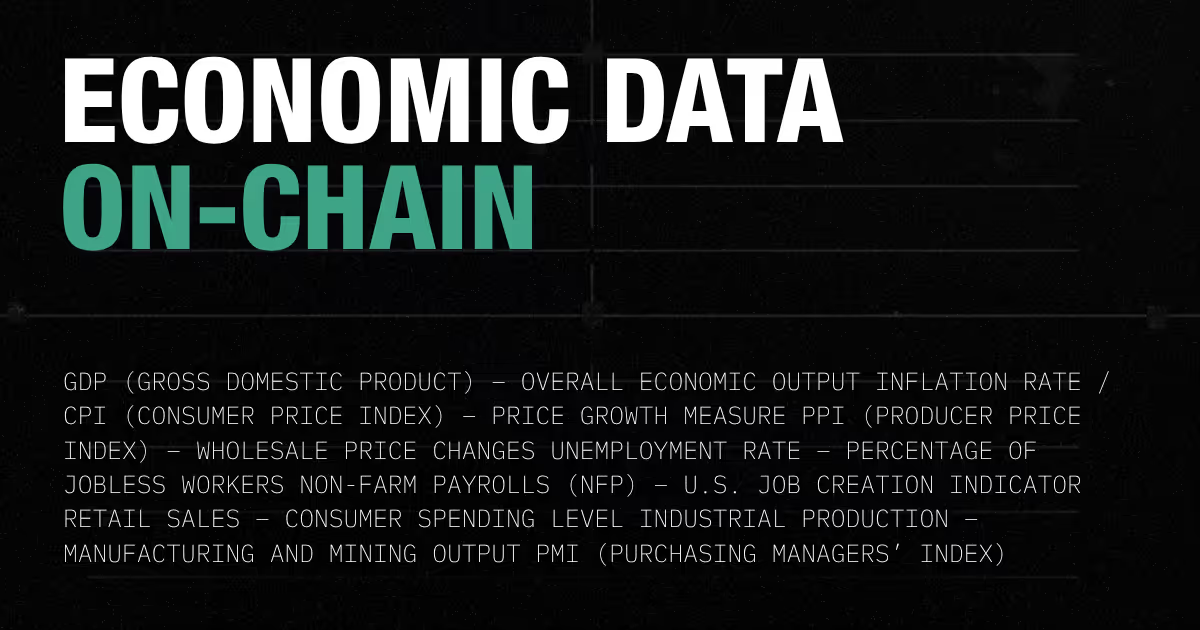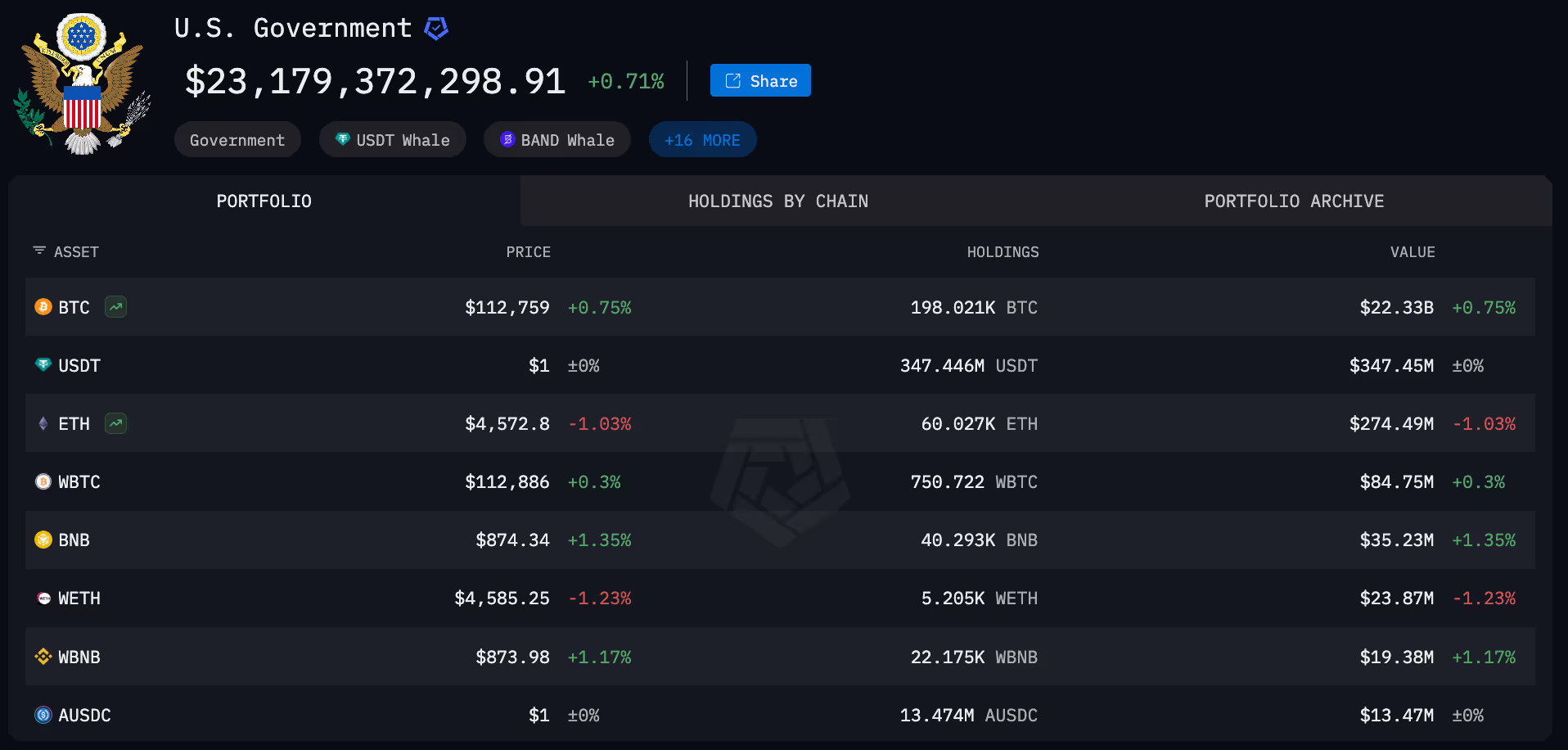August 28, 2025
at
5:20 pm
EST
MIN READ
Why Economic Data is Moving On-Chain

Chainlink has teamed up with the U.S. Department of Commerce to bring macroeconomic data on-chain.
The announcement comes after Howard Lutnick, the US Secretary of Commerce, announced on Tuesday that he wants to put GDP on the blockchain. Lutnick said:
“The Department of Commerce is going to start issuing its statistics on the blockchain, because you are the crypto president, and we are going to put our GDP on the blockchain so people can use the blockchain for data distribution.”

Documentation has already been uploaded to Chainlink’s website outlining how developers can use these data feeds. Chainlink has outlined several use cases for the data:
- automated trading strategies,
- increased composability of tokenized assets,
- the issuance of new types of digital assets,
- real-time prediction markets for crowdsourced intelligence,
- transparent dashboards powered by immutable data,
- DeFi protocol risk management based on macroeconomic factors
The core of Lutnick's proposal is to use blockchain technology for enhanced data distribution. This is because once a piece of data, such as the quarterly GDP growth rate, is released, it would be recorded on an “immutable” blockchain, making it nearly impossible to alter or delete.
The move is framed within the broader pro-crypto stance of the administration, with the stated goal of fostering greater trust in official statistics.
The news comes at the same time as newly revised US GDP growth figures from Q2. The economy grew by 3.3% rather than the initially reported 3.0%.

Herein lies one of the key concerns about putting economic data on-chain: the accuracy of the data. The blockchain can provide transparency and efficiency, but it cannot prevent inaccurate data from being published and remaining there forever.
It is unclear what immediate benefits are available to the US government. However, Chainlink looks set to benefit massively. It is a huge win for an ecosystem that prides itself on being the bridge between the blockchain and real-world data.
LINK is up 5% off the back of the news. Additionally, an Arizona-based real estate firm announced a LINK treasury strategy today, after the Department of Commerce deal was announced.













































































































































































































































































































.png)